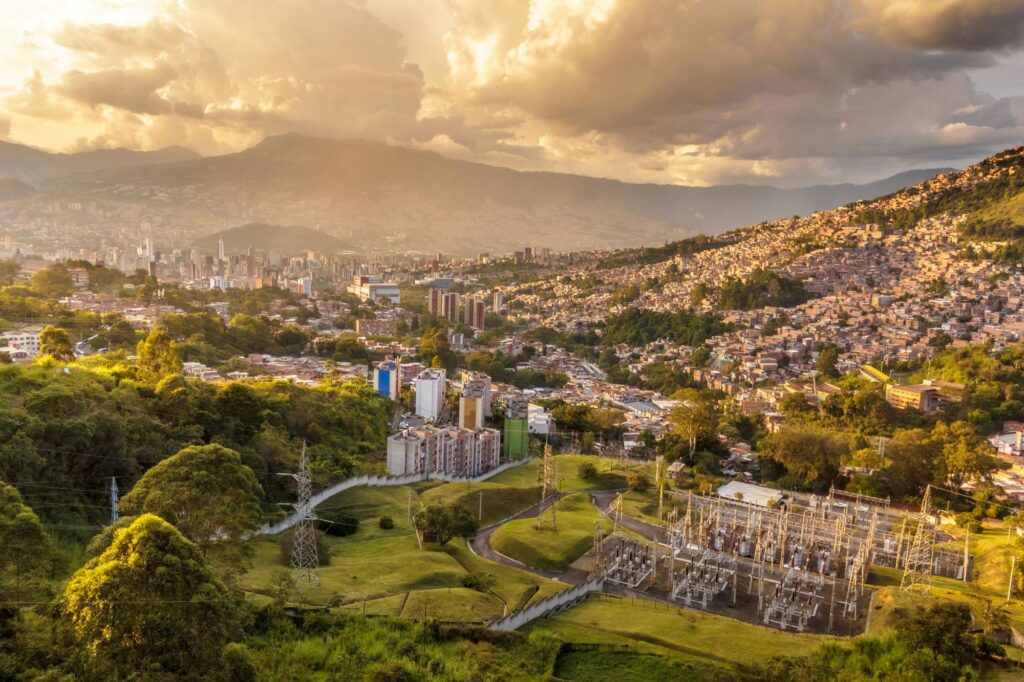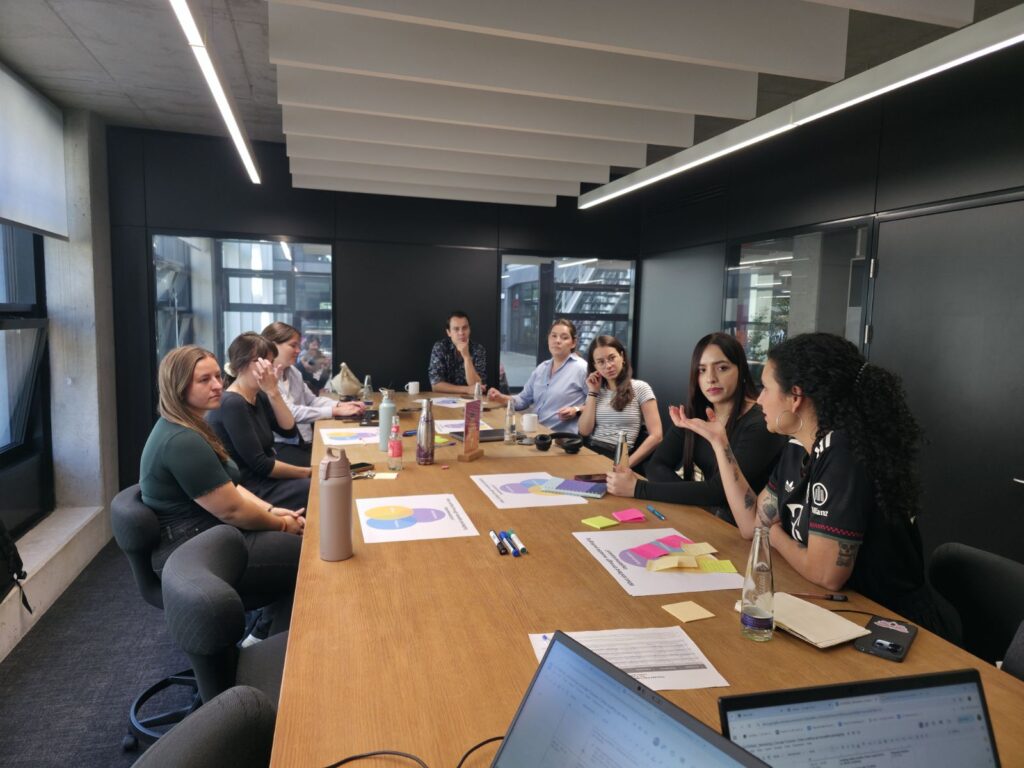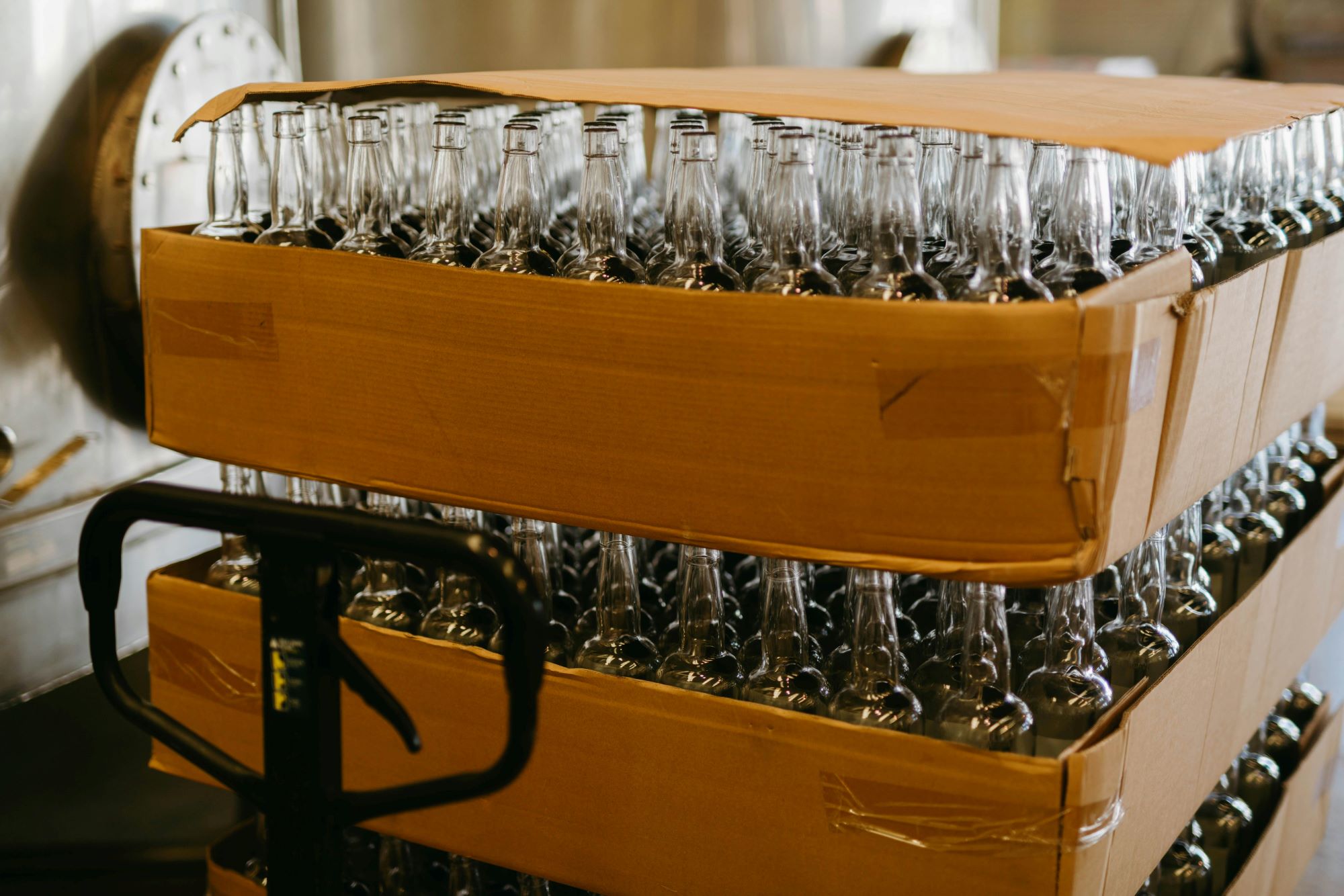ReUse this: Medellín’s steps to scale returnable packaging
From coffee cups to soda bottles, single-use packaging has become a heavy burden for cities. In Medellín, Colombia, over 1,000 tonnes of waste are generated every day, much of it linked to containers and packaging. Almost a third of this is recyclable, yet most ends up in the La Pradera landfill: The site that is nearing capacity and already receives more than 3,400 tonnes of waste per day from Medellín and 40 neighboring municipalities. With over 100,000 tonnes of plastic discarded annually, the challenge is about space, emissions, costs, and lost resources.
Reusable systems
Reusable systems turn packaging from disposable items into assets that circulate multiple times. When well-designed, the reuse approach can cut waste volumes, extend landfill lifespans, reduce emissions, and even create new business opportunities. In fact, studies show Medellín could reduce 10% of its waste-sector emissions by 2030 through circular practices, with even higher potential by 2050.
The Circular City Labs (CCL) project brought together cities from Albania, Colombia, Georgia and South Africa to test practical solutions for packaging reuse. The goal: Connect local governments, businesses, and communities to experiment with circular practices that can be scaled worldwide. The project officially began in 2023, bringing together municipal authorities, private companies, academia, and civil society to co-design solutions. CCL is implemented by the German Corporation for International Cooperation (GIZ) on behalf of the German Federal Ministry for Economic Cooperation and Development (BMZ), together with ICLEI and partners
Medellín, Colombia’s second-largest city, was identified as one of the most technically suitable and advanced cities to explore reuse and returnability of packaging. With ICLEI Colombia’s support, Medellín developed a dedicated Roadmap on reuse and returnability, which later became a key input for the city’s own Circular Economy Policy. By integrating these results, Medellín positioned the circular economy as a policy priority.

This local progress also connects to a broader regional effort. The Área Metropolitana del Valle de Aburrá has designated circular economy as a Hecho Metropolitano (a metropolitan priority), and is advancing a regional roadmap that sets out short-, medium-, and long-term actions across the nine municipalities of the valley, including Medellín.
But arriving here was not easy. It required multi-stakeholder engagement and, crucially, for the city to take real ownership of the process. Cultural shifts – in how businesses, institutions, and residents perceive reuse and returnability – are still pending, and will be essential for the next stage of scaling solutions. Along the way, ICLEI Colombia supported Medellín through several efforts:
- Developing the Roadmap on reuse and returnability, later integrated into the city’s Circular Economy Policy.
- Preparing findings and strategic recommendations based on international references, national analysis, and local diagnosis.
- Organizing multi-stakeholder workshops that enabled dialogue, trust-building, and alignment among city actors.
- Facilitating knowledge exchanges with other cities worldwide, positioning Medellín within global learning networks.
- Co-implementing a pilot to test reuse systems in practice and initiatives to strengthen the entrepreneurial sector for circular innovation.

Lesson 1: Providing evidence through findings and recommendations
To ensure decisions were grounded in reality, ICLEI developed a document of findings and strategic recommendations, combining global best practices with local analysis. This work identified what was feasible for Medellín in the short term and what structural changes would be needed for long-term impact. The recommendations served as a bridge between technical knowledge and political decision-making, helping the city understand how to integrate and which concepts to integrate regarding reuse and returnability actions.
Lesson 2: Turning dialogue into strategy with a dedicated Roadmap
Discussions and evidence were consolidated into Medellín’s first Roadmap on reuse and returnability, a structured document outlining goals, actions, and milestones. This roadmap became a guiding tool for the city, giving stakeholders a concrete plan to follow and later feeding directly into Medellín’s own Circular Economy Policy.
Lesson 3: Expanding perspectives through knowledge exchange
Finally, Medellín benefited from knowledge exchanges with international cities and partners, organized by ICLEI. These peer-to-peer learning opportunities exposed local actors to global experiences in reuse and returnability, showing both successes and challenges. By connecting Medellín to a broader network, these exchanges reinforced the idea that circular economy is not just a local experiment but part of a global movement — and that Medellín could position itself as a leader in Colombia and Latin America.
Another important result has been building capacity in Medellín’s entrepreneurial sector, which is now better equipped to design and deliver circular packaging solutions. Medellín’s Roadmap makes reuse a policy priority, aligning city, metropolitan, and regional strategies, as well as ensuring continuity beyond pilot projects.






